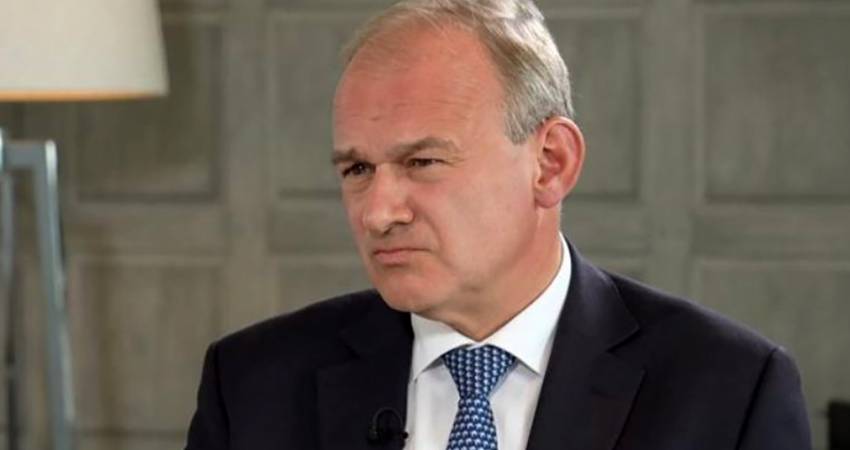
WATCH: Lib Dems leader 'sceptical' of assisted suicide after his mum's cancer battle
The leader of the Liberal Democrats, Sir Ed Davey, has said he is a "sceptic" regarding the case for assisted suicide, referencing his own mother's battle with bone cancer where he said palliative care allowed her to "enjoy life and be with us", adding that he feared pressure would be put on elderly people who feared they might be considered a burden.
Speaking from the party's annual conference in Brighton, Davey told Sky News that a vote should not be rushed, and that MPs should be given a free vote on the issue, urging that they "listen to all sides" of the debate and give deep and careful consideration to the outcome. He also said that he had previously voted against an assisted suicide measure.
"I nursed my mother as a teenager, when she was dying of bone cancer," he said. "And I saw someone who had a very painful disease, and by nursing and palliative care she was able to enjoy life and be with us as she wanted to be."
"I accept every case may be different," he added, saying his other concern was "the pressure it could put on elderly people, not pressure necessarily coming from the relatives but from them inside, internally, which they may not express."
"I think a situation where elderly people might think they are a burden and then proceed with this, that's a huge worry," the Lib Dems leader said.
Keir Stamer's Labour Cabinet has said it will not obstruct a private member's bill on the subject in the coming months, which means a vote could be taken on the issue before Christmas.
Sir Davey said that MPs should "take their time" and the debate should not be rushed. "It would take me to a lot to shift me, but I think we need to debate this. Maybe there are new treatments, new safeguards. I'm open to listening to the debate. But I do come to it as a sceptic for the reasons I've described," he told Sky.
Journalist and campaigner Dame Esther Rantzen is currently spearheading a campaign to see assisted suicide legalised, revealing led she had signed up to the assisted dying clinic, Dignitas, due to her stage four lung cancer.
Palliative care experts remain amongst the strongest opponents of assisted suicide. The Irish Association for Palliative Care (IAPC) has previously voiced strong opposition to the introduction of euthanasia and assisted suicide in Ireland in its position paper submitted to the Joint Oireachtas Committee.
They said that outlawing Assisted Suicide “acts as a form of protection for vulnerable patients who may be basing their decision to die on confounding addressable factors, such as a sense of being burdensome”.
The medical experts argued that good palliative care already assisted patients to ‘die with dignity’ – explaining that it ensured that good care led to minimal pain or discomfort, rather than ending the patient's life.
This article first appeared on Gript and is printed here with permission
Featured
- Calls for inquiry: 108 babies born alive then die after abortion
- Britain: Assisted Suicide Bill ‘will almost certainly fail’
- Every Life Counts: sending love and care for sick babies
- "A step backwards": Jersey has legalised Assisted Suicide
- 8,000 babies saved by Abortion Pill Reversal
- Spain Moves To Restrict Pro-Life Protests Near Abortion Clinics
- Mediums and abortion: a dangerous narrative
- Man jailed for 9 years for forced abortion
- Abortion coercion has arrived in Ireland – the NWC are silent
- Review of at-home abortions 'needed after coercion case'
- French Govt to remind 29-year-olds of biological clock
- Rally for Life 2025



























